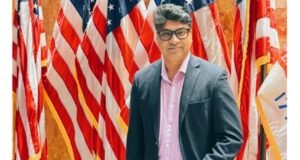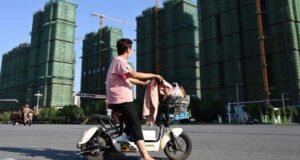
Establishing good governance and equality throughout all sectors is essential for realizing inclusive development aligned with the government’s economic vision, speakers at a roundtable organized by The Business Eye said on Saturday.
Prominent figures in business and economics attended the roundtable titled “Inclusive Development in Bangladesh: Challenges and Opportunities,” at Jatiya Press Club.
Chaired by Farida Yasmin, Editor of The Business Eye and President of the Jatiya Press Club, Senior journalist Syed Ishtiaqe Reza moderated the roundtable.
Renowned economist Dr Kazi Kholiquzzaman Ahmed, former Bangladesh Bank governor Dr Atiur Rahman, former state minister for planning Dr Shamsul Alam, economist Prof Dr Jahangir Alam, BGMEA President Faruque Hassan, Senior Vice President of FBCCI Md Amin Helaly and ICT specialist Ajit Kumar Sarkar spoke at the event among others.
Dr Atiur Rahman emphasized the importance of financial inclusion and inclusive development, aligning with the visionary words of Bangabandhu in 1972. He highlighted Bangladesh’s remarkable economic growth over the last 15 years, citing increased remittances, reduced poverty, improved life expectancy, and notable advancements in women’s participation in the workforce.
Dr Shamsul Alam addressed the challenges ahead, emphasizing the need for good governance to address inflationary concerns by reducing income gaps. He acknowledged the country’s significant progress over the last 15 years due to the government’s policy focusing on the private sector and as a result, the GDP has increased to USD465 billion.
But the income inequality and corruption have become a challenge to this, he said. He proposed effective measures to combat such issues as well as expand the tax base.
Dr. Kazi Kholiquzzaman Ahmed emphasized the tradition of inclusiveness in Bangladesh’s history as essential for sustainable development. He called for a comprehensive approach, combining cash assistance with other components for holistic livelihood development.
The discussion also delved into challenges posed by external factors such as the COVID-19 pandemic and geopolitical events. Speakers urged the government to address issues like the tax-GDP ratio, the dollar crisis, and climate change.
Dr. Jahangir Alam advocated for breaking the syndicate of business, bureaucrats, and politicians to remove corruption and inequality, crucial for ensuring inclusive development.
Farida Yasmin stated Prime Minister Sheikh Hasina’s commitment to a zero-tolerance policy against corruption, emphasizing that it should not overshadow the nation’s achievements.
As Bangladesh eyes becoming the 9th biggest market by 2030, experts underscored the importance of clear policy implementation, good governance, and support for small-scale investors.
As Bangladesh aims to become the 9th biggest market by 2030, experts highlighted the importance of clear policy implementation, good governance, and support for small-scale investors.
BGMEA President Faruque Hassan stressed the declining dependence on foreign labour in the garment sector and called for urgent strategies to harness the potential of the internal market.
Md. Amin Helaly highlighted substantial progress in infrastructure due to the government’s development-oriented policies, emphasizing the need to organize the economy effectively to reap its benefits.
He underscored the importance of building local capacity to meet market demand, preventing it from becoming dominated by foreign entities.
 Weekly Bangla Mirror | Bangla Mirror, Bangladeshi news in UK, bangla mirror news
Weekly Bangla Mirror | Bangla Mirror, Bangladeshi news in UK, bangla mirror news







